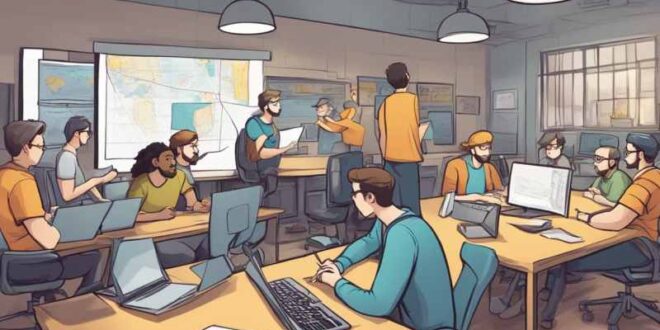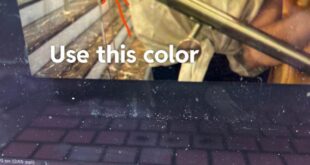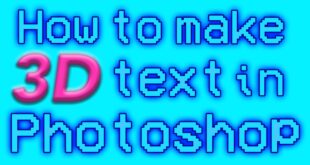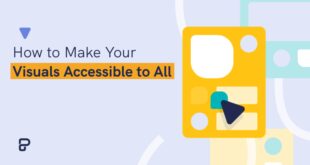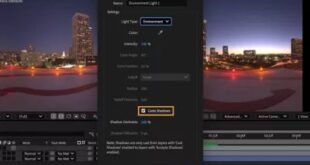Creating Detailed Storyboards In Photoshop For Animation Projects – Learn how to turn blank storyboard sequences into full-color animated videos in this new tutorial from Rembert Montald, storyboard artist at Riot Games.
Continuing with the Storyboard Techniques: Creating a Fight Sequence workshop, Rembert shares his professional techniques for turning raw animations into final animations. Focusing on the first 16 seconds of the fight sequence, he explains in detail the process of thinking the animation into the storyboard. His lecture discussed the importance of camera placement, as the way the camera moves can be used to great effect – especially when working with dynamic shots.
Creating Detailed Storyboards In Photoshop For Animation Projects
This is an advanced drawing workshop; However, Rembert’s approach to teaching is to ensure that his techniques cover all levels and abilities. The aim of the workshop is to give artists the confidence to create their own animations, display them in a portfolio, use them to get a new job or pitch an idea to someone interested.
Story Artist. You Do….what Exactly? — Valerie Lapointe
Rembert Montald believes that the best way to tell a story is to show it. Interested in the content of visual storytelling, Rembert continued his education in animation and art in Brussels, Belgium, and later at Gobelins in Paris. After working on various things, from animated films to even storyboards for theme parks, Belgium was a bit small for him. He has since lived and worked all over the world, including Croatia, Germany, Portugal and the United States. For the past three years, he has worked as a concept and storyboard artist at Riot Games under the mentorship of Ryan Woodward. Check out Rembert’s bio on LinkedIn and follow him at @rembertmontald. Whether it’s an animated film, a TV show, a movie, or a commercial, a storyboard is an essential foundation for the success of your project. Allows you to preview the result before animating everything. An animation storyboard is a visual guide to animation that outlines the characters, settings, actions, and character dialogue that will bring your story to life.
Mastering the art of storyboarding is essential to your creative journey, as a solid storyboard streamlines the complex animation process and keeps you organized just by understanding how to create an animation storyboard template. This ensures a smooth and streamlined workflow for both the production team and customers.
This comprehensive guide covers all aspects of animation storyboarding, from the basics to animation software like Adobe Photoshop, highlighting its importance in the storytelling process.
A finished storyboard is a sequence of images that depict the key elements of each scene, providing animators, production staff, and clients with a visual of the final animation.
8 Storyboard Examples For Your Next Big Idea
Before production, storyboard artists create rough sketches after writing the plot, visual cues, animation styles, character designs, and a complete script. An animation storyboard shows the main scenes in an animation program or movie that should be created and what they should look like when finished.
Storyboards are marked with scene numbers and dialogue notes to indicate important parts of the scene. Motion notes are added to describe what the characters are doing and how scenes should look, and camera notes explain their movements and angles. Other important details are also included to keep everything open and connected during production.
An animation storyboard provides a clear visual guide to what each scene should look like. Without a storyboard, the production team would have had to rely solely on written scripts that were more complex, open to multiple interpretations, and lacked clear direction indicated by visual references.
This animation helps to visualize the film or animation projects. This allows the creative team to visualize and plan the sequence of events and shots. You can refine the flow of the story and make necessary adjustments to improve the overall quality of the final product.
Types Of Animation Storyboards Explained
A storyboard organizes the sequence of scenes and places the events in order. This allows for detailed planning at all stages of pre-production, production and post-production, ensuring that the final animation runs smoothly.
Animation storyboards are an important communication tool between the director, animators, and production crew, keeping everyone on the same page. Additionally, it ensures that clients or non-creatives understand the direction of the design before production begins.
A storyboard streamlines the entire process, saving time and resources by providing clear instructions. A clear direction from start to finish helps avoid misunderstandings, reduces the need for rework, and minimizes wasted time and resources. This ensures production stays on track, from meeting deadlines to budget.
In the first phase, identifying and solving potential problems can be done using an animated storyboard. When planning a scene sequence, the animators and production crew can anticipate and resolve any creative or technical issues, as well as incorporate client feedback before the production process begins.
Cs/info 3152: Introduction To Computer Game Development
The storyboard stage provides a platform to explore creative ideas and experiment with different camera angles, visual effects and character movements to show their maximum potential. During this creative process, a storyboard artist can learn different techniques and techniques to increase the quality and impact of the final product, ultimately improving the visual experience for the target audience.
Storyboards serve as a reference throughout the production process, helping animators create a clear direction for each scene. By referring to the board, artists can maintain consistency in the overall narrative, from visual style to character movement. These guidelines also help animators accurately portray the client’s and director’s vision on screen.
These key points highlight the central role of the storyboard in the animation process and its importance as a powerful tool for creating successful films or animation projects.
Understanding the different types of boards can help you choose the right format for each project. Each type offers unique advantages such as clear graphics, effective communication, and efficient workflow.
What Is Storyboarding?
Mastering storyboard types allows artists to create visual stories, optimize creative processes, and meet diverse expectations.
They still consist of pictures and are usually hand-drawn on paper with written explanations of what happens in each scene. The details on traditional storyboards may vary, but they can still serve as a guide for the animation team.
Some require basic artistic skills, while others require a rough overview to convey visual flow and key information.
These rough sketches are used to show the layout and flow of the scene. A sketch storyboard is typically used by a small team or even an individual who has a clear vision of how they want to present their ideas. Because of their smaller size, they are less detailed, which takes less time than traditional storyboards.
Why You Need A Storyboard (sans Microlearning Edit)
Digital storyboards are traditional storyboards. Instead of drawing by hand, this technique uses specially designed software. This method allows for quick changes and corrections, allowing for quick changes and corrections. A digital storyboard incorporates elements of motion, timing and sound to provide a dynamic preview of the finished product.
Each type of storyboard has its own advantages and is chosen based on factors such as the complexity of the animation design, the preferences of the storyboard creator, and the audience of the storyboard.
A fun animated film about an old man named Carl Fredriksen who sets out on a journey to fulfill his dream of visiting Paradise Falls in South America. In this storyboard, the artist captures Carl’s emotions when Ellie puts his mark through the painting.
An animated series about Finn and Jake exploring the land of Ooo. In the storyboard, interesting characters go on adventures in interesting quests. With vivid and colorful pictures, it shows the funny and imaginative side of the play.
Different Types Of Storyboards + Free Templates & Examples
, about automatic cars in epic battles. This detailed animation storyboard describes exactly how the work experiences should be and how the crew can effectively capture them, paying attention to small details like broken glass to enhance the overall experience.
Is an animated television series about the adventures of the iconic superhero Batman, who wants to protect his city. This detailed storyboard shows where Batman enters the scene, how each kick hits (or misses) its target, and where different lighting such as the moon or spotlights are used.
A popular fantasy film about Luke Skywalker’s journey against Darth Vader and the Empire. Iconic scenes such as lightsabers and space battles have been meticulously recreated to capture the film’s thrilling narrative.
Script analysis helps you understand the basics of key scenes in animation production and makes it easier to visualize the workflow. Clipboard markings provide an organized reference for sketching.
How To Storyboard #arttutorial #storyboard #sketch
When creating a storyboard, sketch rough sketches to visualize what the finished film or final product will look like. Focus on the big picture to spark your imagination and decide to include details in the big picture.
Sketches allow you to experiment with camera angles and see which angles produce the best effect. They offer a preview of the end result before finalizing the product.
Getting a character’s identity is crucial to character development. Animators visualize characters through script and sound
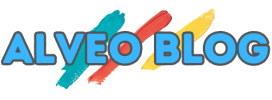 Alveo Creative Blog Guiding users through techniques for enhancing images, retouching portraits, and mastering popular editing software
Alveo Creative Blog Guiding users through techniques for enhancing images, retouching portraits, and mastering popular editing software
